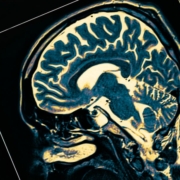Why Do Alzheimer’s Patients Get Angry?
A significant number of individuals with Alzheimer’s disease (AD) will develop behavior and mood problems at some stage of the disease. This kind of aggression usually becomes more obvious when AD patients get to the later stages of the disease. Alzheimer’s patients get angry, irritable, impulsive, and very agitated for no apparent reason. They can also become physically violent and lash out at others. When the individual is angry and upset, no amount of sound reasoning helps and any effort to calm the patient often results in more irritability and anger. More often than not, when Alzheimer’s patients get angry or irritated, it is a form of communication. He or she is trying to send a message that something is bothering them.

CAUSES OF ANGER
There can be many causes of Alzheimer’s disease anger outbursts and agitation in patients, including the following:
- Lack of sleep.
- Confusion – they often have no idea what is happening to them, and anger is just a way of expressing frustration.
- They may not know how to react in certain situations.
- If the caregiver is loud, aggressive, or forceful, the AD patient may respond in a similar manner.
- Memory loss can result in an inability to recognize family members, which can result in frustration.
- They may be experiencing paranoia.
- They may have pain but are not able to communicate that.
- The individual may be depressed.
- He or she may be undergoing an enormous amount of stress because their whole life has been turned upside down by the onslaught of this disease.
- Some individuals may feel that their privacy has been invaded and get angry. For example, this can occur during the process of bathing or changing clothes.
- The individual may have a physical problem, like constipation, urinary or fecal incontinence, or a soiled diaper.
- The individual may find himself/herself in a new environment if recently placed in a nursing home or long-term care facility and may be frightened.
- The environment may be too loud, noisy, and not suitable for a person with behavior problems.
- There may be a sudden change in the individual’s routine, place, or person attending to their needs.
- Being forced to take a shower, eat, or dress may irritate people with AD because they may not be able to perform those activities, and yet they may be scolded for not doing them.
- Feelings of isolation and loneliness.
- Side effects of medication.
- Finally, anger may set in when the individual feels helpless that he or she is unable to do or enjoy things like in the past.
HOW TO MANAGE THE ANGER
The key to managing anger issues is to be proactive and look for early signs of aggression, anger, or agitation. Do not assume that these episodes are just a one-time event because if you do not do anything, they can progress and continue to get worse. Here are some tips on what you can do when Alzheimer’s patients get angry.
- Consult with your healthcare provider as soon as you see signs of Alzheimer’s disease anger outbursts. There may be an organic problem for the aggressive behavior which may be reduced by medication. For example, if the individual is having pain from whatever cause, pain medications may help.
- Always be calm when interacting with a patient with Alzheimer’s disease anger outbursts. Never be aggressive, loud, or upset with them because they can mirror the same behavior. Tell the individual that you understand why he/she is fearful or angry.
- Provide as much independence as you can so that he or she feels they are still able to control things in their life.
- Maintain a routine for daily living activities, like dressing, breakfast, bathing, walking, etc. every day. Sudden life changes can make the individual feel insecure and afraid.
- Try to maintain a quiet environment; for example, when the individual goes to sleep, make sure that there are no loud noises, like music or a blaring TV.
- Maintain photographs and other objects in view that the individual likes or is familiar with. The more they recognize familiar people or objects, the more secure they are likely to feel.
- Encourage the individual to listen to soft music, read a book, watch a favorite TV show, or go for a short walk.
- AD patients can get overwhelmed with noise and the number of people around them. So cut down on the noise and number of visitors at any one time.
- If the individual gets angry, distract him with some type of activity, his favorite snack, or even a gentle massage.
- Limit the intake of junk and fast foods, including excess caffeine and sugar. These foods only add junk calories and can lead to more health issues.
- Sometimes anger issues may be severe, and a non-medical approach may not help. In this case, the healthcare provider may decide to start the patient on a medication to claim the nerves, like an antidepressant or even an anti-psychotic. These agents are usually started at very low doses and for short periods of time.
- Avoid telling the individual what he or she has done wrong. This can often aggravate the situation so do not mention the inciting event.
- Remain calm, patient, and understanding.
- Because AD patients often can’t handle complex tasks, simplify the activity. Keep the directions simple.
- Keep the inside environment well-lit, especially at night. For some reason, a dark environment can trigger paranoia and delusions in these individuals.
NEEDS OF THE CAREGIVER
Looking after an Alzheimer’s patient is extremely difficult and stressful. For the caregiver, this can result in enormous stress and sometimes even a physical and/or mental breakdown. To help manage a patient with Alzheimer’s disease, here are some tips:
- Get help from other family members; if there is no family, consider hiring a nursing healthcare provider to help with some of the daily living activities.
- Try and get a break from caring; for example, if the individual is asleep, get some rest yourself.
- Eat healthily and exercise.
- Join an online caregiver support group and share your concerns with others. You will often get ideas from other caregivers to help manage your family member.
- Spend time with your family and friends.
- Keep up with your hobbies.
SAFETY SHOULD ALWAYS COME FIRST
When Alzheimer’s disease anger outbursts occur, there is a real potential for harm to the caregiver and other family members. Hence, you need to always consider your safety, which includes doing the following:
- Lock and hide all dangerous items, like knives, guns, heavy, and sharp objects in the home. All loose items that can be used as projectiles should be stored out of the reach of the individual.
- Maintain a safe distance from the person.
- If the individual is angry and violent, distract him/her by asking for help or asking if he/she wants to go for a walk. Sometimes, soothing music can help as well.
- If the individual remains angry and irritable, give him/her ample space.
- Try to protect the individual from hurting himself by remaining calm.
- Call for help; sometimes you may have to call 911 if the behavior is severe and the individual is threatening harm.
CONCLUSION
When Alzheimer’s patients get angry, the behavior and anger issues may not be manageable at home, and you may have to consider long-term placement in a nursing home. But always speak to your healthcare provider first to see if there are other options available. Cano Health is a resource for senior patient care. They are a full-service healthcare facility offering help and hope to those on either Medicare or Medicaid. Its mission is to improve the lives of its members. Call them today at 1-855-208-7874 to speak to a knowledgeable representation and learn how they can help you.










